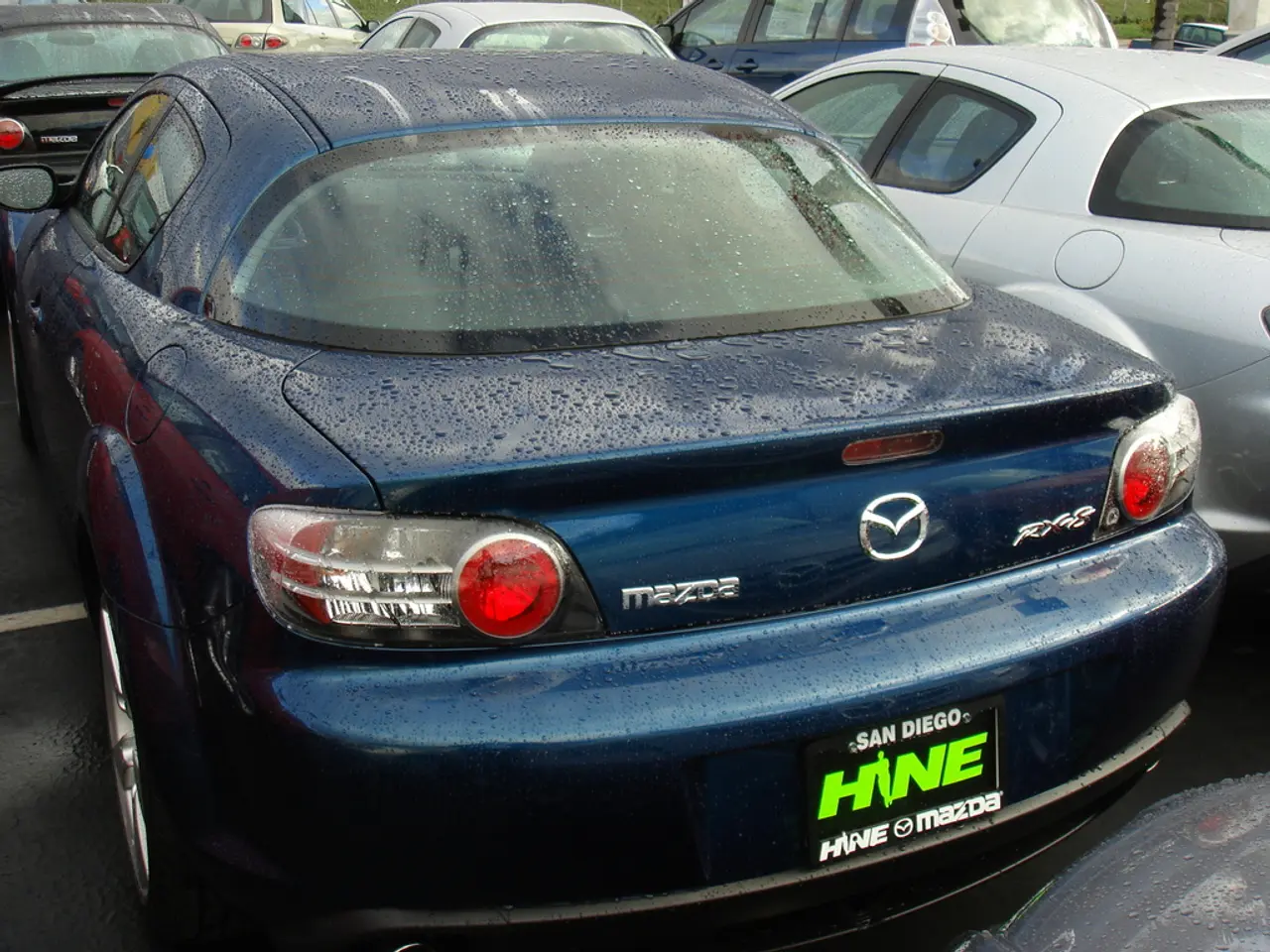Elon Musk declares a potential checkmate against Nvidia.
In the dynamic world of technology, Tesla, the electric vehicle giant led by Elon Musk, is making waves with its latest moves. The company's stock (TSLA) is currently trading at $426.31, with a market cap of $1.4T and a gross margin of 17.48%.
Tesla's strategic focus is on vertical integration, a move that could potentially improve unit economics by reducing supply chain risks and expanding profit margins over time. This strategy is evident in Tesla's plans to design its own artificial intelligence (AI) chips.
The company has codenamed these next-generation chips as AI5 and AI6. By consolidating its high-end computing onto a single family of purpose-built chips, Tesla aims to gain control over performance and cost. This move is significant, as Tesla's AI ambitions are primarily focused on self-driving cars and humanoid robotics.
Tesla's robotaxis and Optimus robots rely on machine learning loops to become "smarter" and more capable over time. The goal is to achieve full self-driving capabilities, a challenge that could potentially disrupt the current market landscape.
However, Tesla may face competition in the autonomous vehicle chip market from industry leaders like Nvidia. Nvidia continues to roll out improved successor architectures to its already industry-leading GPUs, with the recent release of Blackwell Ultra GPUs and plans to launch Rubin GPUs in 2026.
Nvidia remains the leader in powering the training side of AI workloads, thanks to its entrenched position anchored by its hardware and widely used CUDA computing platform. The company's comprehensive hardware-software stack creates immense friction for enterprises considering moving to rival platforms, creating a formidable technological moat and competitive advantage.
Despite the potential competition, it's quite likely that Tesla may remain a complementary player or even an Nvidia customer for AI training protocols. After all, both self-driving cars and humanoid robotics target different end users but share a common theme of autonomy.
The volume for Tesla's stock on the day was 3,315,380, with an average volume of 92,010,534. The day's range for the stock was $421.75 - $429.45, while the 52-week range is $212.11 - $488.54.
As Tesla continues to push the boundaries of technology, it's clear that the company's vertical integration strategy and AI chip ambitions are shaping up to be key drivers of its future success.







